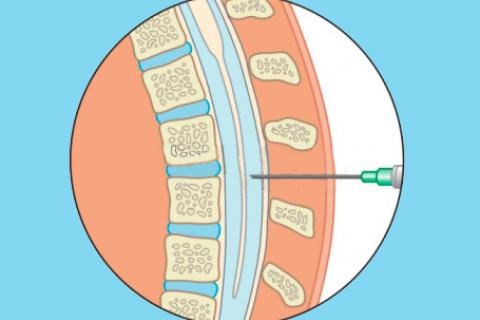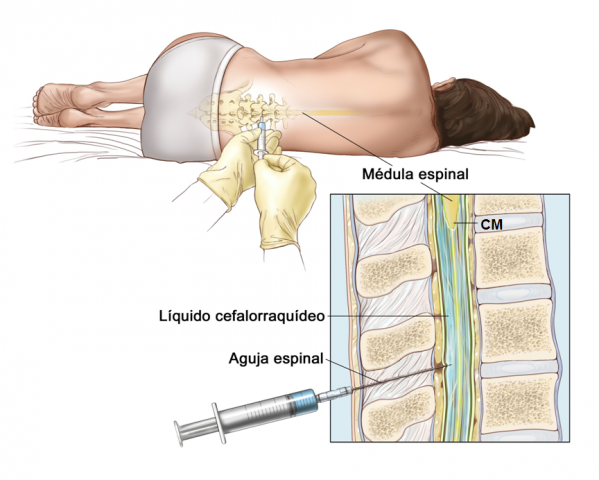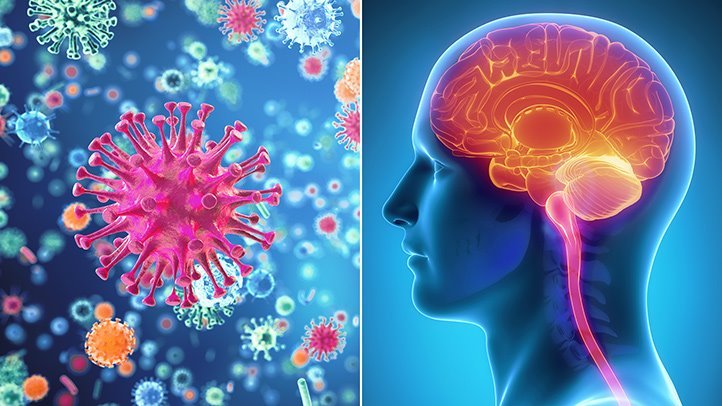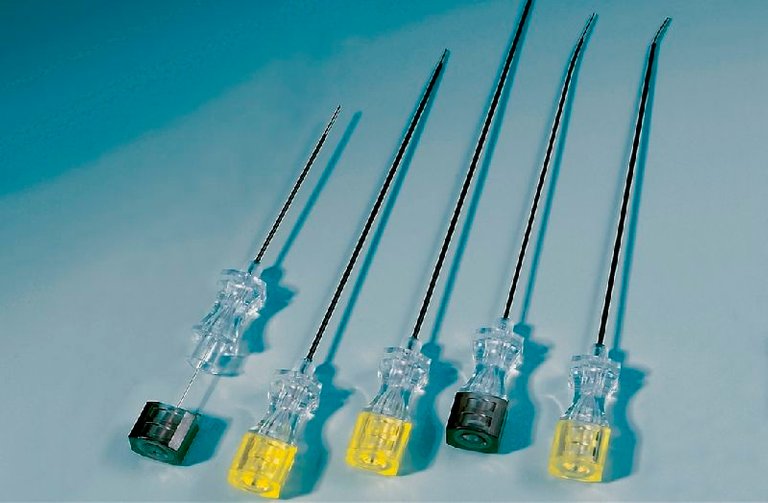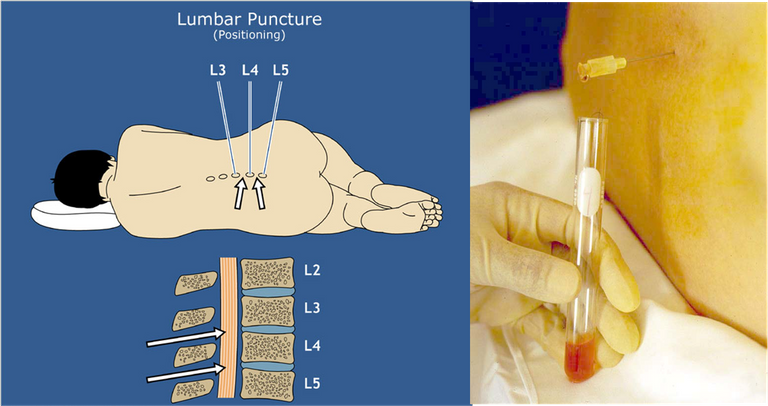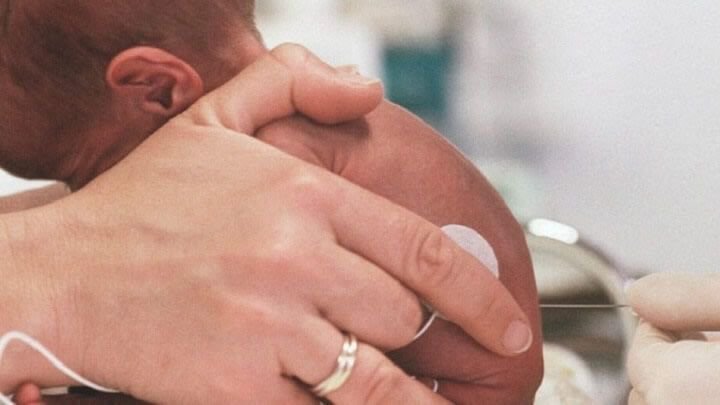Hello, greetings to the entire steemit community, I hope you have a good day. Today we will talk about the lumbar puncture, which is a medical examination that involves the introduction of a needle in the lower back to collect cerebrospinal fluid.
What is a lumbar puncture?
Lumbar puncture is an invasive technique that involves the introduction of a needle or trocar into the subarachnoid space of the lumbar area of the spine.
It is one of the most complicated tests to perform and, therefore, one of the most feared by patients.
Cerebrospinal fluid is a sterile liquid composed of 99% water that serves to protect the brain by cushioning shock. Its analysis allows to detect the possible traces of a disease or an infection, especially a meningitis or a multiple sclerosis.
The appearance of the liquid is a first indicator: if it is cloudy, it is the sign of a bacterial infection; if it is red, it indicates the presence of blood and is synonymous with meningeal hemorrhage. The great advantage of lumbar puncture is that it allows a quick and reliable diagnosis.
✔This technique is used to:
▶ Obtain a sample of cerebrospinal fluid, for study and diagnosis.
▶ Measure the CSF pressure in the subarachnoid space.
▶ Drug administration.
▶ Administration of anesthesia (epidural anesthesia).
▶ Removal of CSF to reduce intracranial pressure (ICP).
✔Procedure:
The lumbar puncture is absolutely painless if done correctly.
We will prepare the patient, for this we will ask him to position himself in the correct way that can be:
▶ Lateral decubitus: with the back parallel to the edge of the bed, with the knees bent and the thighs in the abdomen. This position is the most adequate to measure the PIC.
▶ Sitting: sitting on the edge of the bed, with the legs hanging and a forward inclination with relaxed shoulders and arms in the lap, we can use pillows to facilitate the posture. This position is indicated for children and adolescents as well as for neonates and infants since it has less risk of respiratory compromise.
Once the patient is correctly positioned, we wash our hands thoroughly and we will put on our gloves, prepare the sterile field with all the necessary material and ask the patient to keep still and breathe easy. If necessary, we help the patient to maintain the posture.
Next we will clean the area to puncture with the antiseptic, inside out, making circular movements and let it dry. The local anesthetic that can be sprayed or administered subcutaneously by the doctor will be applied. From here we will collaborate with the doctor in what he indicates and we will provide him the tubes to obtain samples. When the procedure is finished, pressure will be applied to the puncture site and a sterile dressing will be placed.
Finally, we will collect the material, identify the collected samples and send them to the laboratory. We recorded the process and the possible adverse reactions if there were any in the nursing sheets.
The lumbar puncture has no consequences. In the worst case, the patient may suffer a severe headache or nausea. In fact, when the cerebrospinal fluid is removed, the brain is less sustained and weighs more in the skull. To limit these drawbacks, it is recommended to drink plenty of water and lie down for several hours after the exam.
In some cases, a post-lumbar puncture syndrome may appear. This results in headaches, buzzing or pain in the neck. In general, these clinical signs disappear at bedtime, and usually last a maximum of a few days, however if these symptoms persist, it is possible to use a blood patch. It involves injecting a small dose of the patient's own blood, which will coagulate acting as a patch and allow closing the gap that induces the symptoms.
Thanks for reading me ☺
Until the next publication ✎
